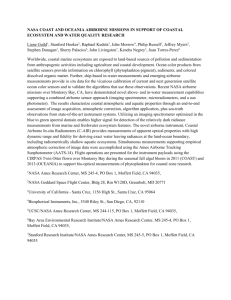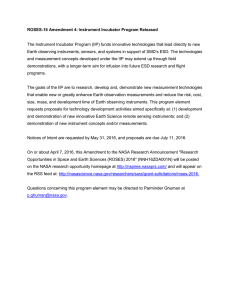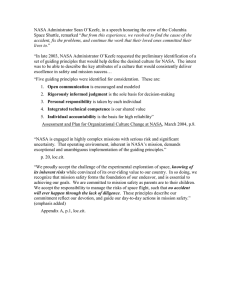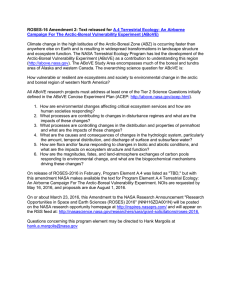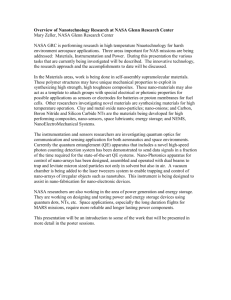NASA Airborne Science Research Internship
advertisement
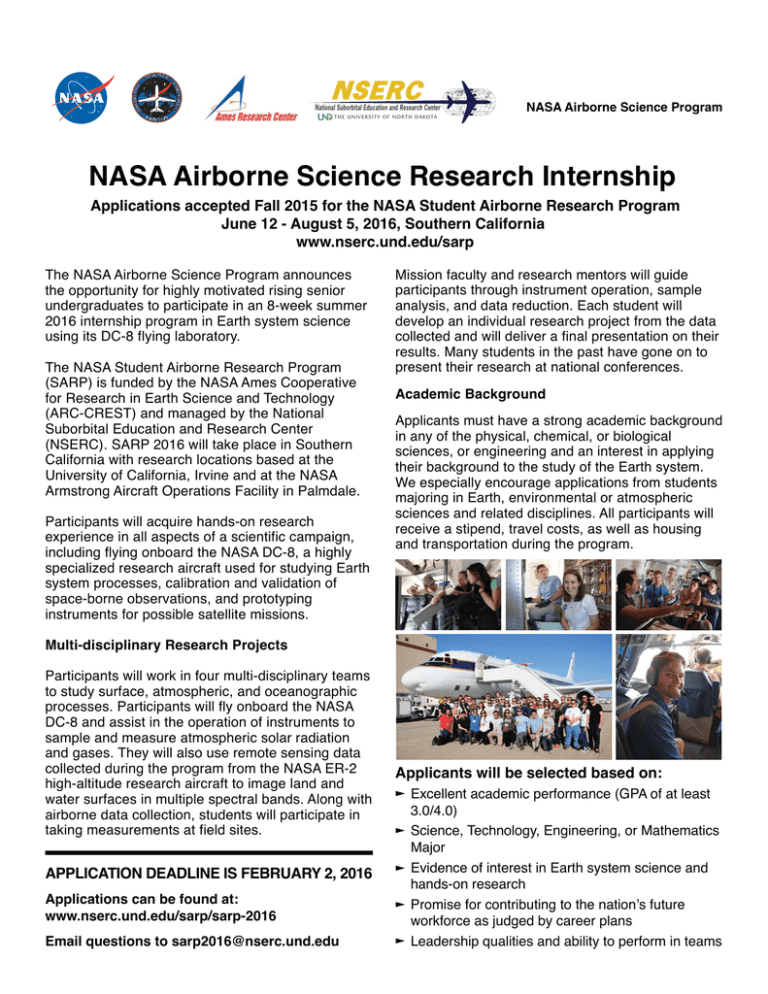
SC IE NCE A GRAM RO BORN IR E P N ASA NSERC National Suborbital Education and Research Center THE UNIVERSITY OF NORTH DAKOTA NASA Airborne Science Program NASA Airborne Science Research Internship Applications accepted Fall 2015 for the NASA Student Airborne Research Program June 12 - August 5, 2016, Southern California www.nserc.und.edu/sarp The NASA Airborne Science Program announces the opportunity for highly motivated rising senior undergraduates to participate in an 8-week summer 2016 internship program in Earth system science using its DC-8 flying laboratory. The NASA Student Airborne Research Program (SARP) is funded by the NASA Ames Cooperative for Research in Earth Science and Technology (ARC-CREST) and managed by the National Suborbital Education and Research Center (NSERC). SARP 2016 will take place in Southern California with research locations based at the University of California, Irvine and at the NASA Armstrong Aircraft Operations Facility in Palmdale. Participants will acquire hands-on research experience in all aspects of a scientific campaign, including flying onboard the NASA DC-8, a highly specialized research aircraft used for studying Earth system processes, calibration and validation of space-borne observations, and prototyping instruments for possible satellite missions. Mission faculty and research mentors will guide participants through instrument operation, sample analysis, and data reduction. Each student will develop an individual research project from the data collected and will deliver a final presentation on their results. Many students in the past have gone on to present their research at national conferences. Academic Background Applicants must have a strong academic background in any of the physical, chemical, or biological sciences, or engineering and an interest in applying their background to the study of the Earth system. We especially encourage applications from students majoring in Earth, environmental or atmospheric sciences and related disciplines. All participants will receive a stipend, travel costs, as well as housing and transportation during the program. Multi-disciplinary Research Projects Participants will work in four multi-disciplinary teams to study surface, atmospheric, and oceanographic processes. Participants will fly onboard the NASA DC-8 and assist in the operation of instruments to sample and measure atmospheric solar radiation and gases. They will also use remote sensing data collected during the program from the NASA ER-2 high-altitude research aircraft to image land and water surfaces in multiple spectral bands. Along with airborne data collection, students will participate in taking measurements at field sites. APPLICATION DEADLINE IS FEBRUARY 2, 2016 Applications can be found at: www.nserc.und.edu/sarp/sarp-2016 Email questions to sarp2016@nserc.und.edu Applicants will be selected based on: Excellent academic performance (GPA of at least 3.0/4.0) Science, Technology, Engineering, or Mathematics Major Evidence of interest in Earth system science and hands-on research 3URPLVHIRUFRQWULEXWLQJWRWKHQDWLRQ·VIXWXUH workforce as judged by career plans Leadership qualities and ability to perform in teams

